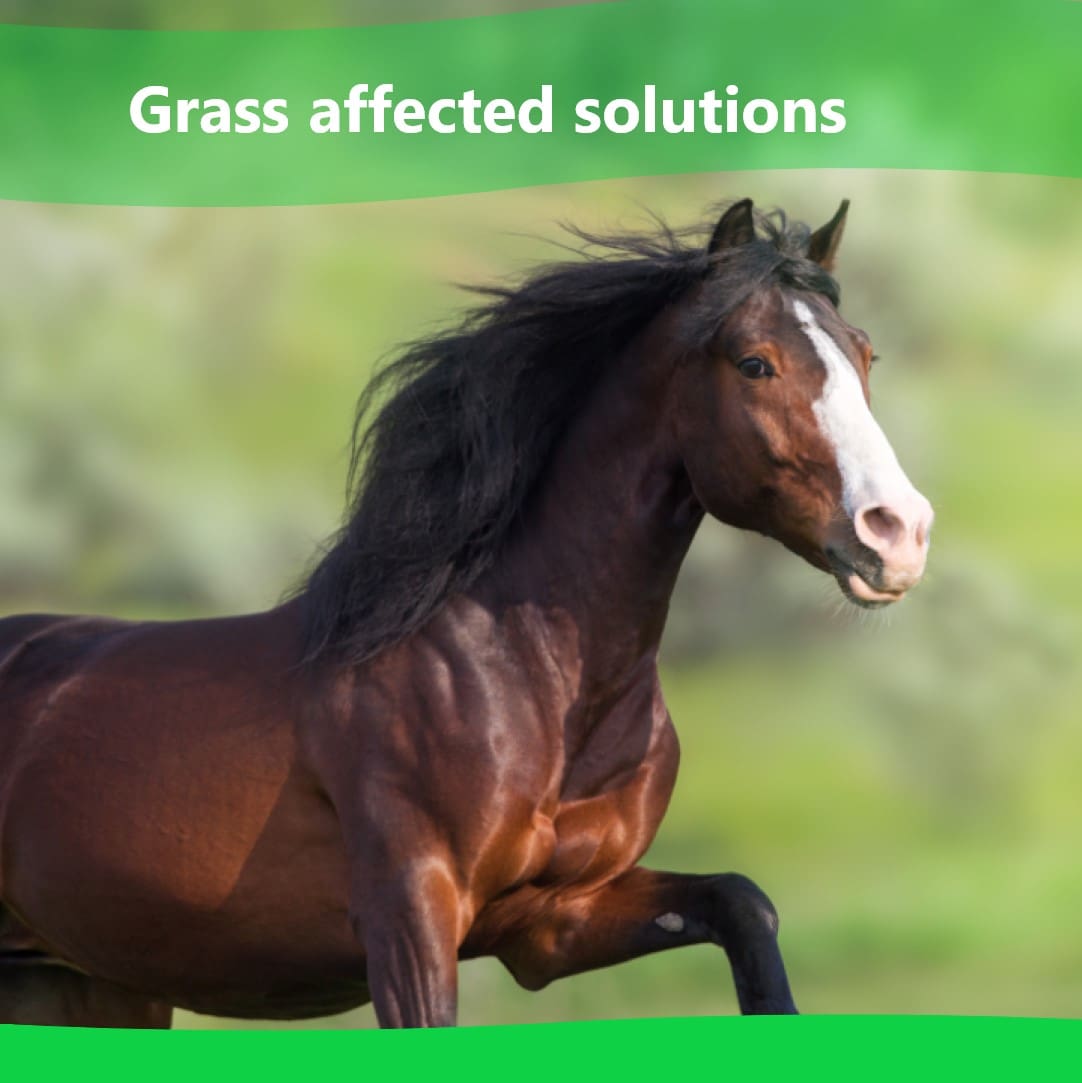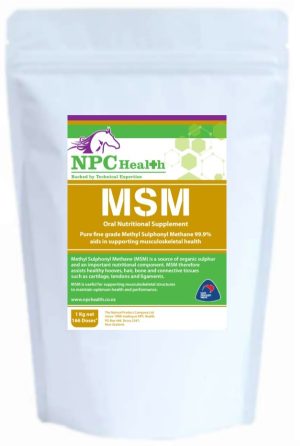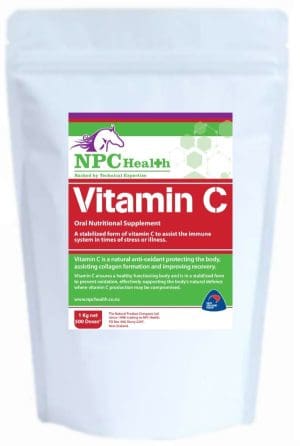Description
NEW! scroll down for a spring health checklist!
Magnesium for Grass affected horses
Help! my horse is grass affected! is what we often hear as the grass starts rapidly growing. If your horse is grass affected with poor behaviour we recommend Mag-Eze! this is a bio-available form of magnesium for horses!
Do i need to feed my horse magnesium?
During rapid pasture growth of perennial rye grass, a large concentration of N, P, K (known as nitrogen, phosphorous and potassium) is taken up by the grass roots and therefore becomes contained in the grass consumed by your horse. The grass requires these elements in abundance to grow. However, these spikes of N, P, K cause imbalances in other minerals by causing competition for uptake, namely sodium and magnesium, which become low (in shortfall). For these reasons, when pasture growth is rapid i.e. spring and autumn - the addition of salt (sodium chloride) and magnesium should be administered to correct levels and make up nutritional shortfalls. This will rebalance your horses' nutritional levels and also flush through unwanted excess of nitrogen and potassium in your horse's system (by feeding sodium chloride) and (by feeding magnesium) re-establish normal levels of magnesium this will in turn, relax muscles and nerves.
What are the symptoms of low magnesium in horses?
The symptoms of low magnesium usually show as a sudden change in behaviour such as becoming over reactive, erratic or anxious, which are noticed by the horse owner as out of character. These signs are commonly referred to as grass behaviour or grass affected horses. However, not all horses are the same and some cooler breeds may not be as exuberant showing these signs. So, it is important to understand that during active pasture flush most horses on fast growing, green pasture would benefit from some magnesium added to the diet.
What are the benefits of magnesium?
By correcting your horse's magnesium status, this will hugely improve your horse's behaviour. This is however one part of a larger picture, as other factors such as pasture management should also be adhered to.
As mentioned, we recommend adding some salt to keep your horse balanced, due to the spike in potassium with fast growing rye pastures. Feed alongside your horse magnesium.
Horses who struggle with weight loss also benefit from magnesium, as this is used in many internal bodily reactions where it helps with the breakdown and metabolism of fat. This is important for horses and ponies who rapidly gain weight. Their feed should therefore include magnesium to help metabolize fat. This is again of particular importance to ponies with fatty deposits such as on the crest and buttocks. These are hazard signs and one of imminent laminitis. So, as you can see magnesium is required by the body for a number of roles and important to include in your horse's diet for a number of other reasons too!
Highly strung or higher performance horses may need daily magnesium supplementation regardless of grass status or weight as magnesium (also being an electrolyte) is required for muscle and nerve function. When magnesium levels are low, horses become more easily stressed, unsettled, anxious or distracted making horse riding or handling unpleasant.
What is the best absorbed form of magnesium?
Magnesium in its organic chelate form known as magnesium chelate is the preferred form over inorganic forms for horses. This is because cell receptors recognize organic material such as protein, amino acids (the building blocks of protein), carbohydrates and fats. Organic is a chemistry term that refers to the natural form that is most bioavailable and best recognized by the body.
The "organic" part of magnesium is attached and bound to the magnesium part to form a compound, such as an amino acid chelate. The process of binding these two elements to form a compound is known as chelation. The body's natural affinity for organic means the cell receptors will instantly recognize and readily absorb the compound. Magnesium in this unique form has a higher bioavailability and therefore higher uptake when compared to an inorganic form such as magnesium oxide.
The highly efficient organic form of magnesium means less wastage and less disruption in the gut with a faster response in raising magnesium levels. Mag-Eze is recommended as the best magnesium for horses and the ideal choice for the grass affected horse.
What about magnesium Oxide?
Inorganics such as magnesium oxide are mined from the ground, are often cheap but don't work as well. Some other inorganic examples are magnesium chloride, magnesium carbonate and magnesium sulphate. These types of magnesium are not bound to organic substances the body recognizes so the uptake is less, the amount therefore required is much more, and as a result it is harder on the gut and can cause gastric disturbances. Overall, it is a much less efficient process and often makes feed unpalatable.
What is the best way to feed magnesium? liquid or powder?
Oral magnesium whether liquid or powder is fine to use. To maintain an even temperament or steady magnesium status we however recommend a daily powder. As magnesium in organic form is water soluble so is readily available for fast uptake by your horse. Liquids can be messy and unpalatable. You still get the same result using an organic magnesium powder.
When to use magnesium for your horse?
Magnesium can be fed during active grass growth, and also to horses for calming. It is therefore helpful during times of stress, over excitement or when the horse is anxious or struggling to focus or settle. As magnesium is required for muscle and nerve function horses in these situations will benefit from the addition of magnesium.
To enjoy horse riding or handling of your horse, the benefits of supplementing your horses feed with Mag-Eze enables blood magnesium to quickly restore so your horse can relax and feel calm again. This is often a considerable step in correcting grass affected horses when grass is growing quickly.
Some people worry about feeding too much magnesium. Excess magnesium in the amino acid chelate form is excreted by the body. We do however recommend following dose rates on the label and never exceed the dose stated. Mag-Eze offers the best magnesium for horses. It has easy to follow, user friendly instructions that will get you back on track. It does not matter using either an oral powder or liquid magnesium, it is about the type of magnesium used and its bioavailability which counts. Mag-Eze is a trusted magnesium supplement for horses.
Make Mag-Eze your go to equine magnesium supplement this spring!
We have put together a spring checklist of other factors to also consider this spring!
A Spring Checklist for healthy horses
TIPS for a healthy horse this spring
- Select quality hay –have available in hay nets ad lib for your horse to browse between grazing
- Manage fresh, green fast, growing grass - feed in moderation (making sure hay is available as above)
- Feed a dipper of chaff or hay before riding or travel (always ensure water is available)
- Make fibre the base to all feed rations
- Feed to workload, condition and also to the season
- Be aware of grumpy gut signs- such as grumbly gut sounds, dislike of girthing, being groomed, runny manure or gut discomfort – then go back through your check list for reasons. There is always a reason!
- Ensure worming is up to date- use a moxidectin active wormer to eliminate the encysted red worm. This emerges in spring from the gut lining (and cannot be seen in FEC’s) and can be a cause of gut discomfort and colic.
- Teeth check – horses need to grind food, so it is also digested well.










